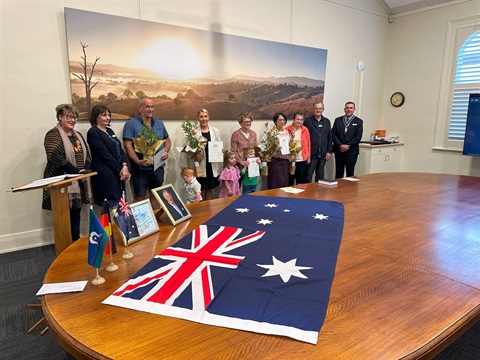
The University of Tasmania’s credentials in the field of environmental research have been underscored with the announcement of the 2020 Australian Museum Eureka Prize finalists.
UTAS is represented twice in the Applied Environmental Research category, and also in the Excellence in Interdisciplinary Scientific Research category.
Two researchers from the School of Natural Sciences, Professor Chris Johnson and Dr Hugh McGregor, are members of the Cat Ecology, Impact and Management Team (Threatened Species Recovery Hub of the National Environmental Science Program), which is a finalist in the Applied Environmental Research category.
This large collaborative team of scientists and land managers has undertaken national-scale research on the ecology of feral cats, tested management options and influenced biodiversity conservation policy.
A team led by Professor Johnson won the 2013 Eureka Prize for Environmental Research, for their investigation of the native dog’s role in the struggle to reduce damage caused by kangaroos, foxes and feral cats.
The University is also a finalist in the Applied Environmental Research category for the Rebuilding Australia’s Lost Shellfish Reefs project, along with its partners The Nature Conservancy, James Cook University and the University of Adelaide.
This research has documented the decline and provided the knowledge required to successfully commence restoring them and their vital ecosystem services, such as cleaner water, more fish and protected shorelines.
In the Excellence in Interdisciplinary Scientific Research category, the University is a finalist with the Social-Ecological Research Frontiers project. The other partners are James Cook University, Macquarie University; University of Technology Sydney; Australia Institute of Marine Science; Western Australia Department of Biodiversity, Conservation, and Attractions; and The Nature Conservancy.
Coral reefs that are thriving despite human and environmental pressures can provide novel insights into confronting complex problems. The Social-Ecological Research Frontiers team assembled the largest dataset of its type on conditions in more than 6,000 reefs across 46 countries, allowing them to locate and learn from these coral reef ‘bright spots’.
In 2019, the University, together with commercial partner Grey Innovation, was successful in the Outstanding Science in Safeguarding Australia category, with a portable device which rapidly detects homemade explosives.
The 2020 Eureka Prize winners will be announced on November 24.








